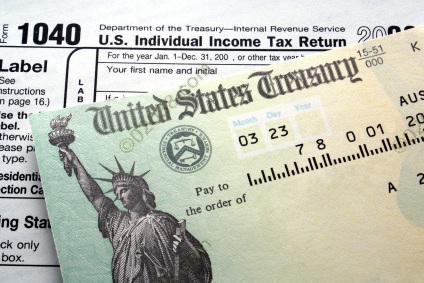Earn Your Money Back: 5 Business Tax Credits You Should Be Claiming
 If you’re considering a start-up business (or already have one well established), you should be aware of the possible tax credits you could claim on next year’s tax return. Every small business will be affected differently, so make sure you know how each credit will apply to your business’ finances specifically.
If you’re considering a start-up business (or already have one well established), you should be aware of the possible tax credits you could claim on next year’s tax return. Every small business will be affected differently, so make sure you know how each credit will apply to your business’ finances specifically.
Here are six lesser-known business tax credits you should consider.
1. Start-Up Deductions
If you’ve started up your business within the last year, you might be able to deduct up to $5,000 of the start-up costs. Any amount above and beyond that will have to be amortized over a period of 18 months.
You’ll have to wait until after you’ve opened your doors and started bringing in business to begin adding up business costs. Non-operational business aren’t eligible for business deductions, unfortunately, even though you’ll probably spend plenty of money just preparing your business for opening day. But once you’ve started generating revenue, keep thorough records of any remaining start-up costs—they’ll all be tax deductible on next year’s return.
2. Energy Efficient
Did you know that going green could get you a tax break? The Business Energy Investment Tax Credit (ITC) does just that. If you’ve been thinking about switching to solar power, wind power, or even tidal energy or geothermal heat pumps, you might be compensated by the government for your trouble. There are limits, of course, just like with any tax credit, but you’ll still receive a sizable amount of your investment back.
You don’t have to jump straight to solar power if you don’t have the budget for it. Start small and work your way up to greener options as you can afford it. For now, keep it simple and call out a roofing company like Chisholm Roofing Ltd and install energy-efficient commercial roofing for your Vancouver business. You might just end up qualified for a tax credit and help the environment at the same time.
3. Charitable Donation
Don’t forget about charitable donations. If you make business donations to a qualified charitable organization, you’ll be able to claim a tax deduction at the end of the year. What qualifies as a charitable organization? Here are a few of the most commonly accepted options:
- Churches
- Volunteer fire or emergency services organization
- Trust funds for any organization operated exclusively for charitable reasons
- Foundations set up for the prevention of cruelty to animals or children
Donations of money, goods, business inventory, or even volunteer service hours can all be counted towards your tax credit, providing you donate them appropriately.
4. Employer Health Care
If you have fewer than 25 full-time employees that average less than $50,000 a year, you might be eligible for a health care tax credit. To qualify, you must be paying at least 50% of your employees’ premium health care costs. This only applies to full-time employees—you don’t need to offer coverage to part-time employees.
The Small Business Health Care Tax Credit will get you up to 50% of the contributions you make to your employee’s premium cost. If you contribute $100,000 to your employees’ premiums, for example, you’ll receive $50,000 in credit.
5. Other Tax Credits
Some small business tax breaks might be fairly recent with new Obama administration policies, but there are some old breaks you shouldn’t forget about. These include:
- Vehicle expenses resulting from business-related errands such as accumulated miles, auto repairs, and even parking fees and tolls.
- Out-of-town business trips.
- ATM or credit card fees accumulated on business accounts.
- Seminars or classes taken to improve your professional skills and knowledge.
- Membership fees in trade organizations or professional groups.
Keep an eye on all of these small deductions too—it might be a challenge to keep good records of simple expenses like parking fees or credit card fees, but the work will pay off when Tax Day comes around again.
Don’t settle for less this year. Start keeping better records of your business costs now, and take full advantage of the tax credits offered to small businesses on both state and federal levels. You might be surprised at what qualifies you for a tax break.
Kara Masterson is a freelance writer from West Jordan, Utah. She graduated from the University of Utah and enjoys writing about business and finance and spending time with her dog, Max. Information credited to Fone Angels, smart phone and tablet repairs.

 Delicious
Delicious Digg
Digg StumbleUpon
StumbleUpon Propeller
Propeller Reddit
Reddit Magnoliacom
Magnoliacom Newsvine
Newsvine
Comments
Post new comment